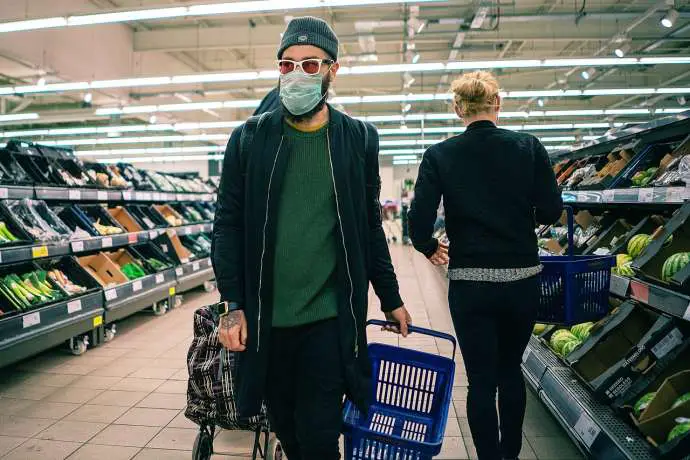STA, 24 June 2020 - The government decided on Wednesday to reintroduce the obligatory use of protective masks in closed public spaces and on public transport. The disinfecting of hands is also compulsory again, Health Minister Tomaž Gantar said, explaining the measures, in force from Thursday, are a result of an increase in recorded Covid-19 cases in recent days.
The minister told the press that 20 new infections had been confirmed in Slovenia between 20 and 24 June.
He announced that the obligatory wearing of masks, which he said had contributed to better results in the past, would be reviewed every two weeks.
The government will continue monitoring the epidemiological situation in Slovenia as well as abroad and introduce additional measures on borders if this proves necessary, Gantar added.
Due to new restrictions on borders in recent days, quarantine has been imposed in around 2,700 cases, the minister moreover explained.
Slovenia expanding list of Covid-19 risky countries
STA, 24 June 2020 - The government is removing Montenegro, Luxembourg from the list of Covid-19-safe countries from which arrivals face no restrictions, while adding Albania and Portugal to the list of countries from where entry into Slovenia entails a mandatory two-week quarantine.
New restrictions for all four countries apply from Thursday, the government spokesman Jelko Kacin told reporters after today's government session, which comes after Slovenia has seen an increase in new coronavirus cases imported from abroad, mostly from the region of the former Yugoslavia.
Kacin said Montenegro and Luxembourg are being removed from the "green list" of epidemiologically safe countries from which entry into Slovenia is restriction-free.
The number of new daily infections per 100,000 residents in those two countries over the past 14 days has exceeded 10.
Albania and Portugal are being moved to the red list of countries from which entry into Slovenia entails a 14-day quarantine, except for some exceptions.
The red list includes countries which registered more that 40 new daily infections per 100,000 residents for the past fortnight.
"The Foreign Ministry strongly advises against any travel to the red-labelled countries," said Kacin, adding that if travel was absolutely essential for business or other reason utmost caution should be exercised and the stay as short as possible.
The government took the decisions after getting acquainted with the assessment of the epidemiological situation in the EU and its neighbourhood, drawn up by the National Institute of Public Health.
Kacin said that while everyone decided for themselves where to go and at what risk during their free time, the government was keen for as few as possible travellers or tourists to venture where it was not safe.
"I'd strongly advise against any travel to Latin America, and the situation is also deteriorating fast in Africa," said Kacin, who believes people follow exactly where to go and where they must not.
Commenting on the change of regime for certain countries, Health Minister Tomaž Gantar said: "If a country is green today, it won't be red tomorrow, but we'll always go via a transition."
"This should give enough time to citizens in that country or abroad, if they follow at least a bit so they know there can be change, but in no case from today to tomorrow so that anyone would be caught off guard. That is not our intention," he said.
According to Kacin, the government also decreed today that the proof of a negative coronavirus test which foreigners need to present to enter Slovenia should not be older than 36 hours.
So far such certificates needed to be not older than three days. The change is to avoid abuse that has happened, said Kacin.
A list of quanrantine countries, not yet updated and in Slovene (but easy to Google Translate) is here







